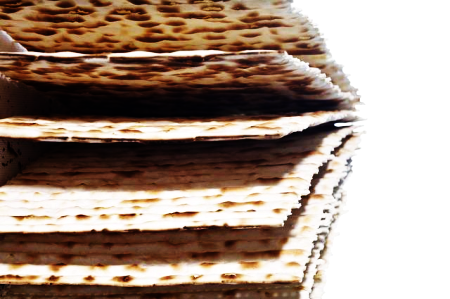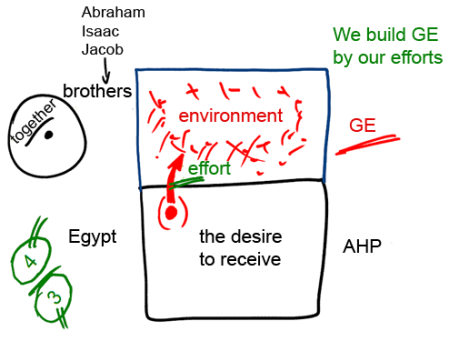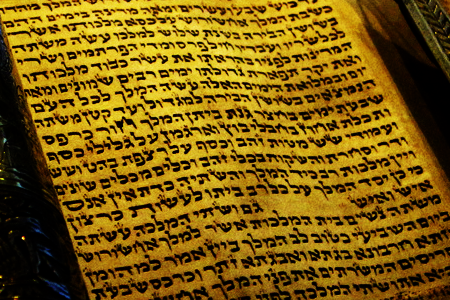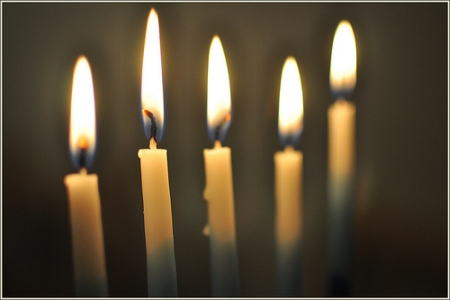“Here is the bread of affliction eaten by our forefathers in the land of Egypt” (Passover Haggadah). When we reside in our ego, we eat the “bread of affliction of the pauper” because we are beggars in relation to spirituality and receive only a tiny bit of Light, a minimal spark of life (Kista de Hayuta) or so-called “faint illumination” (Ner Dakik) that brings to life all of our world.
It is not the “bread” eaten in Egypt. In Egypt, there is lots of food. Our ego gives us everything: Please, do enjoy! However, as soon as we start desiring the spiritual world, long before exiting egoistic “Egypt,” we start tasting the “bread of affliction” since we don’t understand how one can reach bestowal and what good is in it.
I don’t taste any flavor in it. Everything is dry and insipid as this simple cracker made of only flour and water. That is how the spiritual world that I am walking to looks to me. Do I have to flee the prosperous Egypt, all the pleasure-pots filled with fish and meat, rich and delicious, in order to live on the bread of affliction in the desert? Is that what I yearn for?
However, it is indeed so. This is why it is written that “the commandment to eat unleavened bread (Matzot, the bread of affliction) was given to the sons of Israel long before their exodus from Egypt as a symbol of liberation that will come to pass in haste.”
“In haste” means that otherwise it is impossible to exit egoism. Spirituality looks so unattractive and repulsive that exiting into it must be rushed due to the aggressive, external force pulling from egoism. I, myself, am unable to step out of this marvelous world as it seems to me in my egoistic desire.
As for the spiritual world, it seems pitch black darkness to my ego. There is nothing attractive for my egoism there, and I don’t want to see it. Hence, the escape can be made only “in haste”; I am thrown out of there abruptly. Let’s hope the same will be done with us. [Source: Dr. Michael Laitman, “Your Own Passover Haggadah“]
The Spiritual Meaning of the Exodus from Egypt
“Here is the bread of affliction eaten by our forefathers in the land of Egypt” (Passover Haggadah). It follows that the Mitzva (commandment) of eating a Matza (unleavened bread) was given to them while they were still enslaved, and the aim of the Mitzva was for the time of redemption since then they departed in haste. –Baal HaSulam, article “This Is for Judah”
This always occurs when we transition from state to state, leaving the degree we are presently in, i.e. the Egyptian bondage, ruled by our ego, Pharaoh, our stubborn “evil inclination” that holds us hostage and doesn’t let us rise above our jealousy, hatred, lust and ambition.





